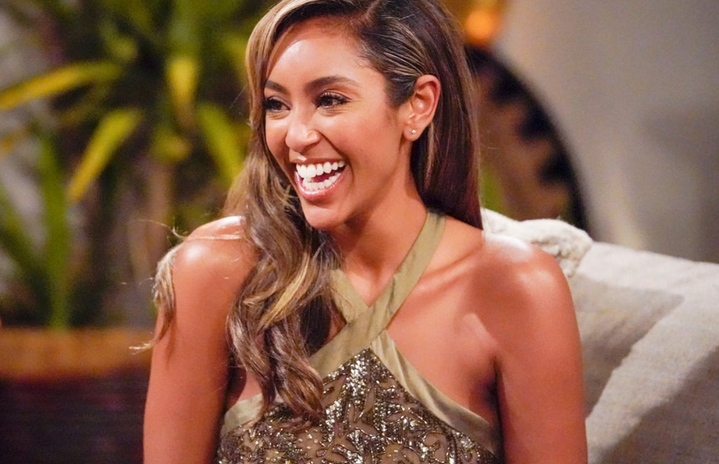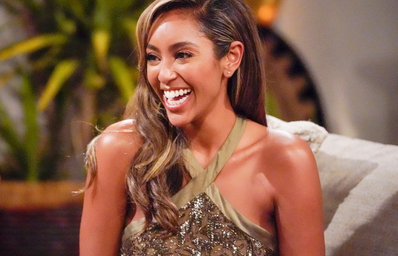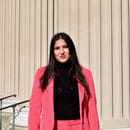For many around the globe, the past two years have been a time for activism and calling for positive change. Today, efforts to end systemic racism are accompanied by increased demand for accountability in the entertainment world. The push for pop culture to be more diverse, inclusive, and equitable, actors, musicians, media figures, and entertainment companies are being asked to reevaluate their actions and the actions of those they associate with or endorse. This includes The Bachelor franchise. Over the past year or so, the show lost its longtime host Chris Harrison, not to mention the support of many former contestants and fans due to its shaky stance on diversity. For many, the few “efforts” of The Bachelor franchise to right its wrongs have come across as performative and too little, too late.
The Bachelor franchise has always struggled with diversity. A 2016 analysis of the Bachelor franchise found that 59% of Black contestants were eliminated by the second episode, and up until then, no Black contestant had made it past week five of any 10-week season. In 2012, two former Black contestants filed a lawsuit alleging that the show was discriminating against people of color in its casting process. According to NPR, ABC denied these claims and said even if there were such discrimination, it was within their right to have entirely white casts. Following the protests over George Floyd’s murder in 2020, The Bachelor promised to improve diversity in casting and welcomed the first Black Bachelor: Matt James. In his season, 25 of the 37 women selected were people of color, which was more than any other year.
Even with its new diversity efforts, The Bachelor and its long-time host Chris Harrison felt out of tune. Harrison stepped away from the franchise after a controversy in which he defended winner Rachael Kirkconnell from the “woke police” after she was condemned for “liking” a picture of her friends standing in front of a confederate flag and attending an antebellum themed party on a former plantation. Upon announcing that the host would not be returning, ABC also stated, “As we continue the dialogue around achieving greater equity and inclusion within The Bachelor franchise, we are dedicated to improving the BIPOC representation of our crew, including among the executive producer ranks.”
Amid the controversy, I joined over 10 Bachelor fan pages on Facebook to see what conversations were really happening. For a while, the dialogue was simply amusing to read — they remained surface level, for the most part, and were focused on events from the show. However, from my own experiences as a fly on the wall in these groups — and by conducting interviews with some of the longtime group members — it became apparent that the dynamics of these communities were changing. As the show sparked more controversy, the conversations became more political, members became more hostile with each other, and much of this occurred as similar shifts took place on the national Bachelor stage.
‘The Bachelor’ Fandom Falls Apart
After Harrison left the franchise in spring 2021, Rachel Lindsay, a contestant on season 21 of The Bachelor (and eventually the first Black Bachelorette), called out Harrison and the show’s racism. The criticism and hate she received from Bachelor nation caused her to deactivate her social media accounts, and even a plea from ABC producers to stop harassing Lindsay did not stop a fanbase that has proven to be as toxic as many of the contestants.
Monique, 22, says that her experience as a Bachelor fan changed drastically when the news about Rachel Lindsay started to unravel. As a member of Bachelor fan groups online, Monique saw conversations unfolding and felt compelled to speak out. However, it came at a cost: Upon speaking up, she instantly faced hostility from group members. “I had to leave all of my Bachelor Facebook groups, the subreddit, [and] I unfollowed a bunch of spoilers and fan accounts,” Monique tells Her Campus. “People who I had interacted with on a daily basis turned against me in seconds and started name-calling and saying some really vile stuff.”
“I don’t consider myself a Bachelor fan anymore. I don’t want to be affiliated with the show or its fans…I don’t get enjoyment from it anymore.”
In those same Facebook groups, some Bachelor fans expressed that the franchise had “sold out to ‘woke’ cancel culture” and that they didn’t think diversity initiatives need to take place — citing how “it’s not the space for politics” in The Bachelor.
Monique is one of the thousands of fans who distanced themselves from The Bachelor over the past year. She tells Her Campus that the great controversy emerged, the number of members in Facebook fan groups declined, which she believes was due to the racist, sexist, and homophobic comments that some fans shared online.
“I don’t consider myself a Bachelor fan anymore,” Monique says. “I don’t want to be affiliated with the show or its fans. I don’t get enjoyment from it anymore.”
Many Bachelor fans noticed a similar shift in the membership of these online communities. Jennifer, 23, tells Her Campus that members were leaving at a rapid pace and that the “vibe had shifted” on social media. To many, Facebook no longer felt like a group to discuss their favorite show, but rather, a platform for prejudiced fans to bash Rachel Lindsay, activists, and to criticize the Black Lives Matter movement.
Cameron, 20, began to witness more cyberbullying than ever before. “I really thought that these groups were being overrun by conservatives,” Cameron tells Her Campus. “but then I realized that it wasn’t that [new] people were joining — a lot of people had just left. There are only so many times you can see women rank all the Black and Latinx contestants as the ‘ugliest’ of every season.”
“As a Black woman, I couldn’t take it at a certain point.”
One of the most popular Bachelor franchise Facebook groups became so uncomfortable for fans that a smaller, now-deleted offshoot group titled ”bachelor fans (NO racism)” formed just one week after the hate toward Rachel Lindsay reached its peak. The fans who founded the new group made members agree that no forms of racism, sexism, or homophobia would be tolerated. Even with these spaces created, many fans left the online scene entirely, citing too much “exhausting in-fighting” and group members flagrantly ignoring the rules set by group admins.
“I used to moderate a little Bachelor group for people in my city,” Shannon, 29, tells Her Campus. “When we would do our jobs and reject posts that were racist or sexist or anything like that, we would receive backlash in the comments for people accusing us of censorship. I guess in some ways it was censoring, but it was our group, our rules — that’s the way a private group should be.”
While Shannon was used to pushback as a Facebook group moderator, eventually, the backlash became more severe and targeted. “After a year or so, members turned against the mods and the group became so toxic that it had to be deleted entirely,” Shannon says. “As a Black woman, I couldn’t take it at a certain point. People who you would always chat with would send in some truly disgraceful stuff — as if ‘Shannon the person’ and ‘Shannon the moderator’ would accept two different things.” She notes that fans would say “there’s too much of a ‘diversity push’” and even question the need for a Black Bachelor.
Chris Harrison Isn’t A ‘Martyr’
When ABC announced that former host Harrison would be leaving the show after almost 20 years with The Bachelor franchise, some Facebook fans spoke about him as if he was a ‘martyr’ — AKA a symbol of maintaining the status quo of a primarily white, southern, Christian show. It became easy for riled-up fans to blame the “woke police” they felt canceled Rachel Kirkconnell, and for a lot of viewers looking for someone to rally behind in the so-called ‘culture war,’ Harrison became a figurehead. Lindsay even went as far as to say that Harrison was a “martyr for cancel culture.”
Maria, 24, says that Harrison’s departure from The Bachelor franchise was long overdue. “Chris Harrison wasn’t even that good of a host,” she tells Her Campus. “He didn’t know how to speak to women and the conversations were always so scripted and surface-level. Watching him trying to empathize with 25-year-olds was just very, very uncomfortable.” In Maria’s experience, the same people who would criticize Harrison also made him a sort of martyr. “He just validated their fears that their racism will come back to bite them in the ass and obviously, some people didn’t like that,” she adds.
The antithesis of Harrison’s symbolic role as the man who would keep The Bachelor at the status quo was Lindsay, who has never been shy about the realities of the show. And for some fans, the unjustified, racialized hate toward her was evident — even among those who didn’t like Lindsay as The Bachelorette. In fact, in almost all of the Facebook fan groups I observed, the name “Rachel Lindsay” was accompanied by vomit emojis and received “angry” reactions on Facebook. She was called everything from “mad” to “classless” to a variety of racial slurs. In many of these groups, admins did little to stop the microaggressions or end the in-fighting. In some, the admins would join in or even encourage this type of behavior.
Jennifer tells Her Campus, “At the end of the day, I think a lot of viewers were scared of women like Rachel Lindsay — educated, wealthy Black women who are not trying to become white or embarrassed by being Black. The hatred comes from jealousy and white fragility that people like her will be their boss one day.”
Some fans pointed out similarities in how fans spoke about Lindsay and Tayshia Adams — the second Black and first Latinx Bachelorette — in comparison to white contestants. Adams, fans noticed, was constantly described as “articulate” — an obvious microaggression — and Lindsay was consistently referred to in Facebook groups as “classless” and “uneducated,” despite being a practicing attorney for a decade with a law degree. It doesn’t appear white contestants or Bachelorettes have ever been described in similar ways.
Fans have even blamed Lindsay for swaying other contestants’ political beliefs. One fan says Lindsay was responsible for “making Bachelorette Becca Kufrin liberal” since Kufrin — who won season 22 of The Bachelor and later appeared as the lead on season 14 of The Bachelorette — did not discuss her politics until after becoming friends with Lindsay (The Bachelor notoriously avoids conversations about politics on-screen). Additionally, Lindsay was accused of manipulating Kufrin into ending her relationship with winner Garrett Yrigoyen — a contestant with a history of liking anti-immigrant posts, supporting the Blue Lives Matter movement, and calling survivors of the Parkland shooting “actors.” Although Kufrin’s disapproval of Yrigoyen’s actions was made clear, Lindsay was wrongly painted as a villain who caused the end of a relationship (that had been on the rocks for a long time).
Where does ‘The Bachelor’ go from here?
Every season, it feels like the production team’s vetting process is faulty, and the show has a habit of casting toxic contestants time and time again. And while ABC claims to be committed to doing a better job and casting more diverse contestants, many fans aren’t convinced.
“The producers know the problem won’t be fixed by casting token minority contestants,” Monique says. “When y’all encourage your fans to be racist and to accept racist casting the past 20 years, adding a few minorities into the mix is not going to fix the cultural issue.”
Like Monique, many feel that diversity initiatives will not be enough to stop the revolving door of controversial figures on the show or in the fan groups. To them, the problem is far more systemic and simple casting changes will not change the root of the problem: That many fans rally around these figures, no matter how problematic they are.
Two Bachelor fans I spoke with believe that diversity initiatives will actually lead to the show being naturally “canceled” when many of its devoted (read: problematic) viewers become turned off and lose interest. In fact, hundreds of posts arose within Facebook fan pages after Chris Harrison left the franchise, with fans claiming that they would never watch the show again.
The seventeenth season of The Bachelorette, led by Katie Thurston, premiered on June 7, 2021, and was the first season without Harrison as its host. Instead, it was co-hosted by franchise alums Tayshia Adams and Kaitlyn Bristowe. It’s worth noting that Thurston’s premiere had a record-low viewership, posting around 1.5 million viewers less than the previous season. The eighteenth season, which premiered in October 2021, featured Michelle Young (a runner-up on The Bachelor season 25). And spoiler alert: Michelle and winner Nayte Olukoya just made history as the first Black couple to come out of The Bachelorette. Young’s season was also the first to have a Black lead, a Black co-host, and a Black executive producer, demonstrating a milestone for the franchise. The finale had around 3.3 million total views — still down from previous seasons — but for some, the winning couple signified progress.
Young’s season featured more conversations about race that did not feel forced nor surface level, another sign that the franchise is moving in the right direction. Now, former host Chris Harrison has been replaced by Jesse Palmer and the show has begun casting more contestants of color. And while the recent season might be viewed as progress for some — at least in terms of representation — The Bachelor franchise still has a long way to go.
Since its inception, the show’ has perpetuated messages about whose love is worth televising, allowing racist fans to weaponize the show’s very white past to prevent any real change. One fan I spoke with even believes that the show will always uphold racist ideals and perpetuate harmful standards.
“The Bachelor and Bachelorette validate every racist’s thoughts about love: that it’s only meant for Christian, blonde people,” Clara, 21, tells Her Campus. “If you don’t see that, it’s because you don’t want to see that. When the majority of the show no longer reflects that, people will turn their TVs off and that’ll be the end of The Bachelor.” (And like Clara says, maybe this would be a good thing).
While this is not a call to boycott the show altogether, there should be few expectations that its racist past will change. So, what should viewers expect? Painfully slow progress. One can’t expect the franchise to be fully transformed without a complete overhaul of its messaging, fanbase, and the problematic former contestants it continues to champion.
Although there is currently a strong, outward-presenting push for The Bachelor franchise to change its ways, it is also too early to see whether this pattern will continue or if the past few months were simply acting as performative crisis management. At the end of the day, now is the time for fans to keep pushing and to make The Bachelor franchise fulfill the promises that it has long failed to keep.
Sources
Monique, 22
Jennifer, 23
Cameron, 20
Maria, 24
Shannon, 29
Clara, 21


